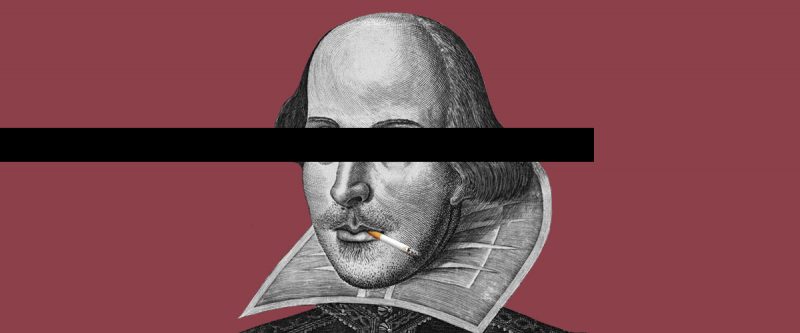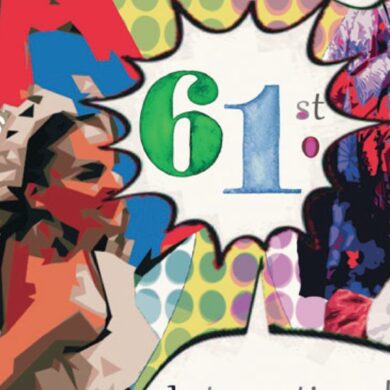Villains are the best. We may not love them in our lives, but they’re often the best part of our literature—on account of their clear power, their refusal of social norms, and most importantly, their ability to make stories happen. After all, if everyone was always nice and good and honest all the time, literature probably wouldn’t even exist.
To that end, below are a few of my favorites from the wide world of literary villainy. But what exactly does “best” mean when it comes to bad guys (and gals)? Well, it might mean any number of things here: most actually terrifying, or most compelling, or most well-written, or most secretly beloved by readers who know they are supposed to be rooting for the white hats but just can’t help it. It simply depends on the villain. Think of these as noteworthy villains, if it clarifies things.
This is not an exhaustive list, of course, and you are more than invited to nominate your own favorite evildoers in the comments section. By the way, for those of you who think that great books can be spoiled—some of them might be below. After all, the most villainous often take quite a few pages to fully reveal themselves.
 Mitsuko, Quicksand, Junichiro Tanizaki
Mitsuko, Quicksand, Junichiro Tanizaki
The brilliance of Mitsuko (and the brilliance of this novel) is such that, even by the end, you’re not sure how much to despise her. She is such an expert manipulator, such a re-threader of the truth, that she is able to seduce everyone in her path (read: not only Sonoko but Sonoko’s husband) and get them to like it. Including the reader, of course. In the end, Sonoko is still so devoted to her that the grand tragedy of her life is the fact that Mitsu did not allow her to die alongside her.
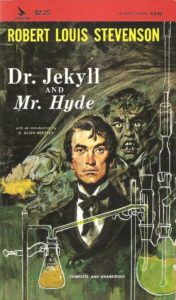 Mr. Hyde, The Strange Case of Dr. Jekyll and Mr. Hyde, Robert Louis Stevenson
Mr. Hyde, The Strange Case of Dr. Jekyll and Mr. Hyde, Robert Louis Stevenson
Because the very worst villain is . . . get this . . . actually inside you. Also, you just fell asleep one time and when you woke up it was your evil id and not you? We’ve heard that one before. (So has Buffy.)
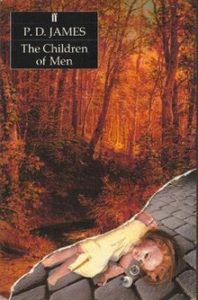 Infertility, The Children of Men, P. D. James
Infertility, The Children of Men, P. D. James
Sure, Xan is also a villain in this novel. But the real, big-picture villain, the thing that causes everything to dissolve, and people to start christening their kittens and pushing them around in prams, has to be the global disease that left all the men on earth infertile.
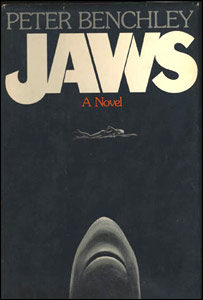 The shark, Jaws, Peter Benchley
The shark, Jaws, Peter Benchley
A villain so villainous that (with the help of Steven Spielberg) it spawned a wave of shark paranoia among beach-goers. In fact, Benchley, who also wrote the screenplay for the film, was so horrified at the cultural response to his work that he became a shark conservationist later in life.
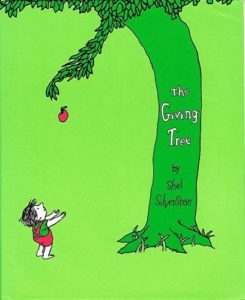 The kid, The Giving Tree, Shel Silverstein
The kid, The Giving Tree, Shel Silverstein
Take, take, take. This kid is the actual worst.
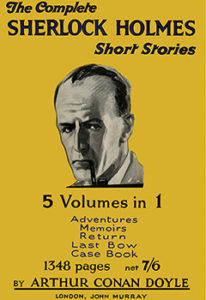 Professor Moriarty, “The Final Problem,” Sir Arthur Conan Doyle
Professor Moriarty, “The Final Problem,” Sir Arthur Conan Doyle
A criminal mastermind— “the Napoleon of Crime,” as Holmes puts it—and the only person to ever give the good consulting detective any real trouble (other than himself). Though after countless adaptations, we now think of Moriarty as Holmes’s main enemy, Doyle really only invented him as a means to kill his hero, and he isn’t otherwise prominent in the series. Moriarty has become bigger than Moriarty.
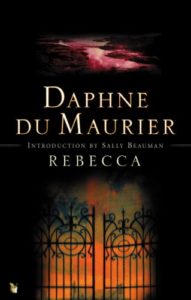 Mrs. Danvers, Rebecca, Daphne du Maurier
Mrs. Danvers, Rebecca, Daphne du Maurier
The housekeeper so devoted to her dead ex-mistress that she’s determined to keep her memory alive—by goading her boss’s new wife to jump out of the window to her death. That’s one way to do it, I suppose.
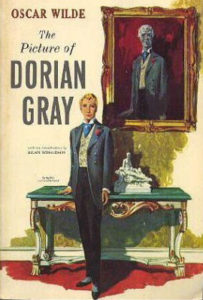 Vanity, The Picture of Dorian Gray, Oscar Wilde
Vanity, The Picture of Dorian Gray, Oscar Wilde
You could argue that it’s Harry who corrupts Dorian, and James who stalks and tries to murder him, but the real source of all this young hedonist’s problems is his own self-obsession. Sometimes I like to think about what this novel would be like if someone wrote it today, with Dorian as a social media star. . .
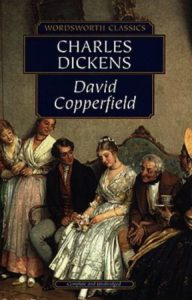 Uriah Heep, David Copperfield, Charles Dickens
Uriah Heep, David Copperfield, Charles Dickens
Few villains are quite so aggressively ugly as Uriah Heep (even the name! Dickens did not go in much for subtlety). When we first meet him, he is described as a “cadaverous” man, “who had hardly any eyebrows, and no eyelashes, and eyes of a red-brown, so unsheltered and unshaded, that I remember wondering how he went to sleep. He was high-shouldered and bony; dressed in decent black, with a white wisp of a neckcloth; buttoned up to the throat; and had a long, lank, skeleton hand.” Some Dickens scholars apparently think that Heep was based on Hans Christian Andersen, in which case, mega burn—unless Andersen was into heavy metal.
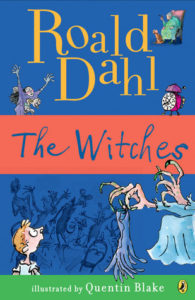 The Grand Witch, The Witches, Roald Dahl
The Grand Witch, The Witches, Roald Dahl
As “the most evil woman in creation,” she is on a mission to torture and kill as many children as possible, and often uses murder as a focusing device in meetings. She’s also kind of brilliant—I mean, murdering children by turning them into animals their parents want to exterminate? I have to say, that’s smart.
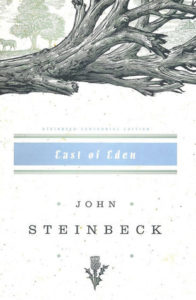 Cathy Ames, East of Eden, John Steinbeck
Cathy Ames, East of Eden, John Steinbeck
Cathy Ames is cold as ice—a sociopath who had to learn as a child how to mimic feelings to get by—but soon also learns how easy it is to manipulate, destroy lives, and murder people to amuse herself. Apparently all this is available to her because of her remarkable beauty. In the end, she has a single feeling of remorse and promptly kills herself.
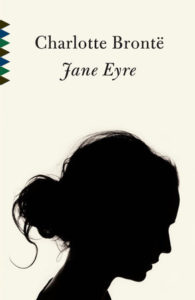 Mr. Rochester, Jane Eyre, Charlotte Brontë
Mr. Rochester, Jane Eyre, Charlotte Brontë
That’s right, I said it. Mired in self-pity! Sullen and annoying! Dresses up as a gypsy to mess with Jane’s mind! Keeps his first wife locked in the attic! Thinks he can marry a nice girl like Jane anyway! Gaslights her constantly! Whatever.
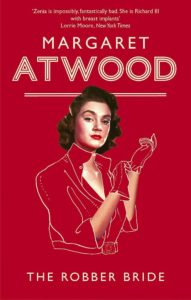 Zenia, The Robber Bride, Margaret Atwood
Zenia, The Robber Bride, Margaret Atwood
In Atwood’s retelling of the Grimm fairy tale “The Robber Bridegroom,” an evil temptress named Zenia steals the partners of three women (among many, one presumes). Roz, Charis, and Tony, however, use their mutual hurt and hatred to form a friendship—and unpack the many lies and revisions of herself Zenia has offered to each of them. But I can’t really put it better than Lorrie Moore did in a 1993 review of the novel:
Oddly, for all her inscrutable evil, Zenia is what drives this book: she is impossibly, fantastically bad. She is pure theater, pure plot. She is Richard III with breast implants. She is Iago in a miniskirt. She manipulates and exploits all the vanities and childhood scars of her friends (wounds left by neglectful mothers, an abusive uncle, absent dads); she grabs at intimacies and worms her way into their comfortable lives, then starts swinging a pickax. She mobilizes all the wily and beguiling art of seduction and ingratiation, which she has been able to use on men, and she directs it at women as well. She is an autoimmune disorder. She is viral, self-mutating, opportunistic (the narrative discusses her in conjunction with AIDS, salmonella and warts). She is a “man-eater” run amok. Roz thinks: “Women don’t want all the men eaten up by man-eaters; they want a few left over so they can eat some themselves.”
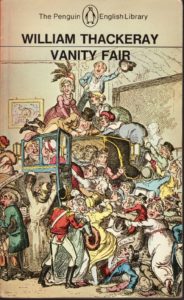 Becky Sharp, Vanity Fair, William Makepeace Thackeray
Becky Sharp, Vanity Fair, William Makepeace Thackeray
A cynical, manipulative, intelligent beauty with many artistic talents and a premium can-do attitude at her disposal. You’ve never met a more dedicated hustler. By the end, the novel seems to judge her pretty harshly—but I’ve always loved her.
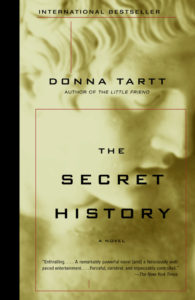 Henry, The Secret History, Donna Tartt
Henry, The Secret History, Donna Tartt
Oh, Henry—brooding, brilliant, bone-tired Henry. Some in the Lit Hub office argued that it was Julian who was the real villain in Donna Tartt’s classic novel of murder and declension, but I give Henry more credit than that. His villainy is in his carefulness, his coldness, his self-preservation at all costs. He is terrifying because we all know him—or someone who could oh-so-easily slide into his long overcoat, one winter’s night.
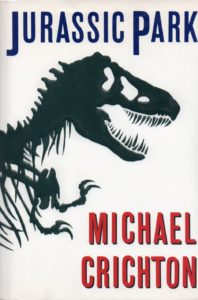 Hubris, almost all of literature but let’s go with Jurassic Park, Michael Crichton
Hubris, almost all of literature but let’s go with Jurassic Park, Michael Crichton
Isn’t it awesome? We can just make dinosaurs! There is no foreseeable problem with this. We can totally handle it.
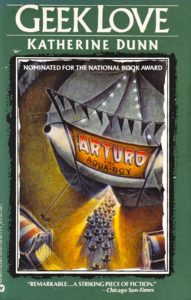 Arturo, Geek Love, Katherine Dunn
Arturo, Geek Love, Katherine Dunn
Here’s another novel with multiple candidates for Supreme Villain—should it be the Binewski parents, who purposefully poison themselves and their children in order to populate their freak show? Or should it be Mary Lick, a sort of modern millionaire version of Snow White’s Evil Queen, who pays pretty women to disfigure themselves? I think we have to go with Arturo the Aqua Boy, the beflippered narcissist who grows into a cult leader, encouraging his followers to slowly pare away their body parts in a search for “purity.” (But for the record, it’s all of the above.)
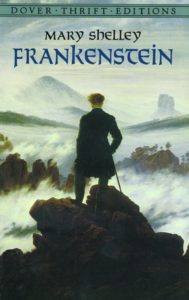 Dr. Frankenstein, Frankenstein, Mary Shelley
Dr. Frankenstein, Frankenstein, Mary Shelley
It’s true that the monster is the murderer in Shelley’s classic novel—and also, you know, a monster—but it’s Dr. Frankenstein who decided he had to play God and build a creature in his own image without thought to the possible ramifications! Shelley treats him as a tragic figure, but that only makes him a much more interesting villain.
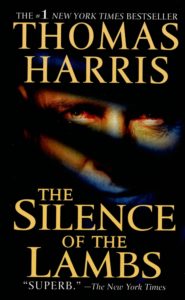 Hannibal Lecter, Red Dragon, The Silence of the Lambs, etc., Thomas Harris
Hannibal Lecter, Red Dragon, The Silence of the Lambs, etc., Thomas Harris
Made iconic by Anthony Hopkins, of course, but made brilliant and terrifying—a serial killing psychiatrist cannibal, come on—by Thomas Harris. “They don’t have a name for what he is.” Also, he has six fingers—though they’re on his left hand, so it couldn’t have been him who killed Mr. Montoya. Still, it puts him in rare company.
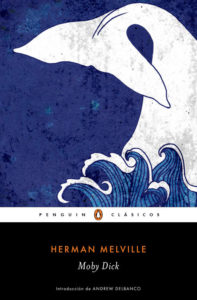 Captain Ahab, Moby-Dick, Herman Melville
Captain Ahab, Moby-Dick, Herman Melville
Did you think the villain was the whale? The villain is not the whale—it’s the megalomaniac at the helm.
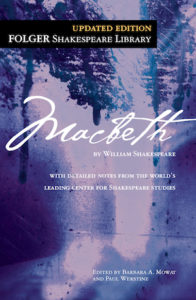 Lady Macbeth, Macbeth, William Shakespeare
Lady Macbeth, Macbeth, William Shakespeare
The villainess of choice for every man who has ever claimed his wife made him do it. But I’ve always found Lady Macbeth more interesting than Macbeth himself—she’s the brains behind the operation, not to mention the ambition. Her sleepwalking scene is one of the best and most famous of all of Shakespeare’s plays. Even this makes me shiver:
Out, damned spot! out, I say!—One: two: why,
then, ’tis time to do’t.—Hell is murky!—Fie, my
lord, fie! a soldier, and afeard? What need we
fear who knows it, when none can call our power to
account?—Yet who would have thought the old man
to have had so much blood in him.
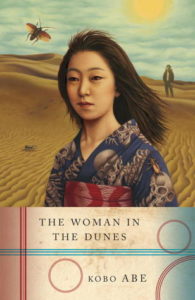 Sand, The Woman in the Dunes, Kobo Abe
Sand, The Woman in the Dunes, Kobo Abe
It may be the devious villagers who trick the poor etymologist into the sand pit, but it is the sand itself that is the main antagonist in this slim and wonderful novel. The sand that keeps coming, and must be shoveled back. The sand that constantly threatens to swallow everything: first the man, then the woman, then the village—though one assumes the villagers would replace him before that happened. Sand.
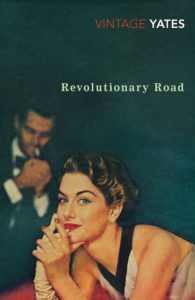 Suburban Ennui, Revolutionary Road, Richard Yates
Suburban Ennui, Revolutionary Road, Richard Yates
In everyone’s favorite horror novel about America in the ’50s, onetime bohemians Frank and April Wheeler move to the ‘burbs, and find it. . . extremely stifling. But it’s not the suburbs exactly but the Wheelers’ inability to understand one another, their fear, their creeping, cumulative despair, that are the forces of destruction here.
“The book was widely read as an antisuburban novel, and that disappointed me,” Yates said in a 1972 interview.
The Wheelers may have thought the suburbs were to blame for all their problems, but I meant it to be implicit in the text that that was their delusion, their problem, not mine. . . I meant it more as an indictment of American life in the 1950s. Because during the fifties there was a general lust for conformity all over this country, by no means only in the suburbs—a kind of blind, desperate clinging to safety and security at any price, as exemplified politically in the Eisenhower administration and the Joe McCarthy witch-hunts. Anyway, a great many Americans were deeply disturbed by all that—felt it to be an outright betrayal of our best and bravest revolutionary spirit—and that was the spirit I tried to embody in the character of April Wheeler. I meant the title to suggest that the revolutionary road of 1776 had come to something very much like a dead end in the fifties.
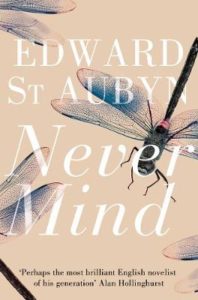 David Melrose, Never Mind, Edward St. Aubyn
David Melrose, Never Mind, Edward St. Aubyn
Fathers don’t get much worse than David Melrose: cruel, brutal, and snobbish, a man who enjoyed humiliating his wife, who raped his young son, and who seemed to doom all those close to him to a life of pain. You could also argue that the British Aristocracy is the villain in the Patrick Melrose books, but . . . David is definitely worse (if slightly less all-encompassing).
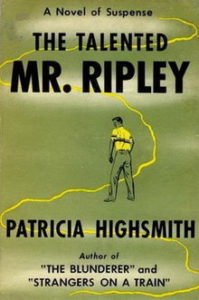 Tom Ripley, The Talented Mr. Ripley, Patricia Highsmith
Tom Ripley, The Talented Mr. Ripley, Patricia Highsmith
Here’s a villain you can’t help but root for—I mean, sort of. You feel his pain as he tries to insinuate himself into the life of the man he so admires (and perhaps loves), and as he is first welcomed and then pushed away. Less so when he murders his beloved and assumes his identity—but somehow, as you read, you find yourself holding your breath around every corner, hoping he will escape yet again.
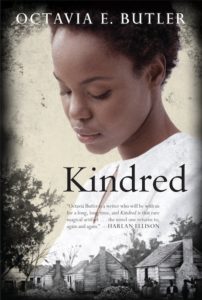 Rufus Weylin, Kindred, Octavia Butler
Rufus Weylin, Kindred, Octavia Butler
As slaveowners go, Rufus isn’t the worst (his father might rank) but he isn’t the best, either. He’s selfish and ignorant, and (like most men of the time) a brutal racist and misogynist, who doesn’t mind raping women as long as they act like they like it. Actually, the fact that he thinks he’s better than his father actually makes him worse. That said, the real antagonist in this novel might actually be the unknown and unexplained force that keeps transporting Dana from her good life in 1976 California to a Maryland slave plantation in 1815. What’s that about?
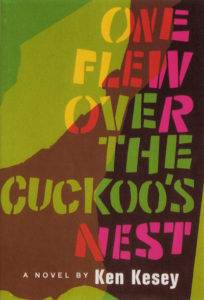 Nurse Ratched, One Flew Over The Cuckoo’s Nest, Ken Kesey
Nurse Ratched, One Flew Over The Cuckoo’s Nest, Ken Kesey
Big Nurse rules the patients of the asylum ward with an iron fist. She is addicted to order and power, and can be quite cruel in commanding it. In comes McMurphy, our hero, who wants to undercut her. He does undercut her, in fact, a number of times—but when he goes too far, she has him lobotomized. The end! I know Ratched is meant to be evil, and it’s supposed to be depressing that she wins, but I can’t help but sort of like the fact that after a man chokes her half to death and rips off her shirt in an attempt to humiliate her (because no one with breasts can have power, you see!), she simply has him put down.
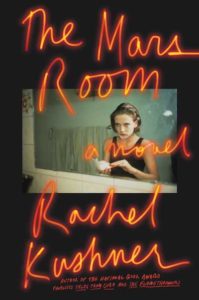 The Prison-industrial complex, The Mars Room, Rachel Kushner
The Prison-industrial complex, The Mars Room, Rachel Kushner
Who is really the villain in Rachel Kushner’s most recent novel? It can’t be Romy; serving a life sentence for killing a man who was stalking her. It can’t be the man himself, who didn’t quite understand what he was doing. It can’t be any of the prisoners, nor any of the guards in particular. Nor is this a book with no villain, because the pulsing sense of injustice is too great. It is the whole thing, every aspect, of the American prison system—meant to catch you and bleed you and keep you and bring you back—that is the true villain in this novel (and often, in real life).
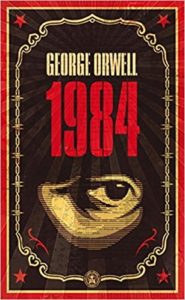 Big Brother, 1984, George Orwell
Big Brother, 1984, George Orwell
Of course it’s O’Brien who does most of the dirty work—but it’s Big Brother (be he actual person or nebulous invented concept) that really, um, oversees the evil here.
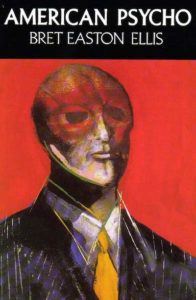 Patrick Bateman, American Psycho, Bret Easton Ellis
Patrick Bateman, American Psycho, Bret Easton Ellis
He’s a shallow, narcissistic, greedy investment banker, and also a racist, a misogynist, an anti-Semite and a homophobe, and also a sadist and a murderer and a cannibal and Huey Lewis devotee. He’s also weirdly pathetic. Can’t really get any worse than that as a person—but as a character, he’s endlessly entertaining.
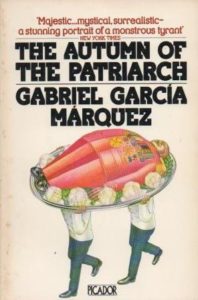 The General, The Autumn of the Patriarch, Gabriel García Márquez
The General, The Autumn of the Patriarch, Gabriel García Márquez
It’s José Ignacio Saenz de la Barra who is the most bloodthirsty, but the unnamed General (of the Universe) who is the most compelling villain in this novel: an impossibly long-lived tyrant who has borderline-magical control over the populace, and even the landscape, whose roses open early because, tired of darkness, he has declared the time changed; who sells away the sea to the Americans. He is desperately unhappy; he considers himself a god. Luckily, we get to spend almost the entire novel within his twisting brain.
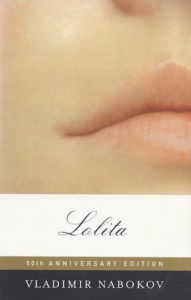 Humbert Humbert, Lolita, Vladimir Nabokov
Humbert Humbert, Lolita, Vladimir Nabokov
The genius of old Hum is how compelling he is—that is, despite the horrible thing he spends the entire novel doing (kidnapping a young girl whose mother he has murdered, driving her around the country and coaxing her into sexual acts, self-flagellating and self-congratulating in equal measure), you are charmed by him, half-convinced, even, by his grand old speeches about Eros and the power of language. In the end, of course, no amount of fancy prose style is enough to make you forget that he’s a murderer and worse, but for this reader, it’s pure pleasure getting there.
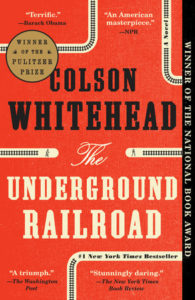 Ridgeway, The Underground Railroad, Colson Whitehead
Ridgeway, The Underground Railroad, Colson Whitehead
The slave-hunting Ridgeway, Whitehead writes, “was six and a half feet tall, with the square face and thick neck of a hammer. He maintained a serene comportment at all times but generated a threatening atmosphere, like a thunderhead that seems far away but then is suddenly overhead with a loud violence.” He’s a little more interesting and intelligent than a simple brute—in part due to that sidekick of his—which only makes him more frightening as a character. Tom Hardy is a shoo-in for the adaptation.
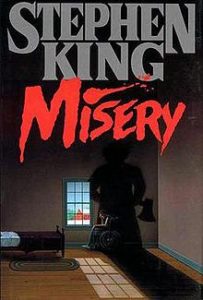 Annie Wilkes, Misery, Stephen King
Annie Wilkes, Misery, Stephen King
Listen: Annie Wilkes is a fan. She’s a big fan. She loves Paul Sheldon’s novels about Misery Chastain, and she is devastated to discover—after rescuing Sheldon from a car wreck—that he has killed off her beloved character. Things do not then go well for Paul, because as it turns out, Annie is already a seasoned serial killer who is very handy (read: murderous) with household objects.
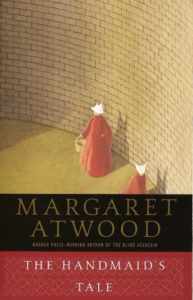 The Republic of Gilead, The Handmaid’s Tale, Margaret Atwood
The Republic of Gilead, The Handmaid’s Tale, Margaret Atwood
The government that has taken control of America in the world of Atwood’s classic dystopia is a fundamentalist theocracy whose leaders have eliminated the boundary between church and state—and worse, have twisted religious principles and political power in an attempt to utterly subjugate all women, erasing their identities and allowing them to exist only so far as they may be of use to the state. It is super fucked up and exactly what I worry about in a country where fundamentalists have any among of political power.
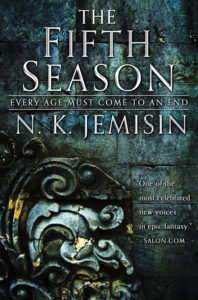 The Earth, The Broken Earth series, N. K. Jemisin
The Earth, The Broken Earth series, N. K. Jemisin
It’s pretty hard to fight back when the thing you’re fighting is the earth itself, which punishes those who walk upon it with extreme, years-long “seasons” of dramatic and deadly climate change. Ah, Evil Earth!
 Iago, Othello, William Shakespeare
Iago, Othello, William Shakespeare
The worst villain is the one who knows you best—the one you might even love. The scariest motive is the lack of one—what Coleridge called Iago’s “motiveless malignity.” The most interesting villain is the one who has even more lines than the titular hero. He is a fantastic villain, a dangerous trickster, whose character has stumped (and intrigued) critics for centuries.
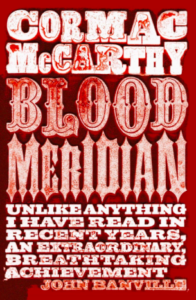 Judge Holden, Blood Meridian, Cormac McCarthy
Judge Holden, Blood Meridian, Cormac McCarthy
Possibly the most terrifying character in modern literature (or any literature?), Glanton’s deputy is over six feet tall and completely hairless. More importantly, despite the fact that he might be a genius, he inflicts senseless and remorseless violence wherever he goes. The man murders (and, it is suggested, rapes) children and throws puppies to their doom. He might actually be the devil—or simply evil itself. He never sleeps, the judge. He is dancing, dancing. He says that he will never die.
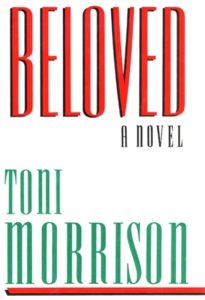 Slavery, Beloved, Toni Morrison
Slavery, Beloved, Toni Morrison
This entire novel is based on a single idea: that a loving mother might murder her baby daughter to save her from life as a slave. Sure, the slavers are bad (and the schoolteacher is particularly chilling). Sure, you could make an argument that the vengeful spirit Beloved’s presence is destructive, splintering further an already fractured family. But these are only symptoms, in this the Great American Novel, of the Great American Sin.
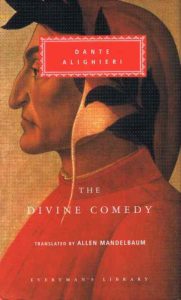 Satan, The Divine Comedy, Dante Alighieri
Satan, The Divine Comedy, Dante Alighieri
The obligatory first place in the scheme of literary evildoers: Satan himself. Though honestly, as depictions of the devil go, Dante’s is somewhat less than fearsome—not least because he too must suffer all the pains and indignities of Hell, tortured and torturing, crying from all six of his eyes as he chomps on Judas Iscariot.

